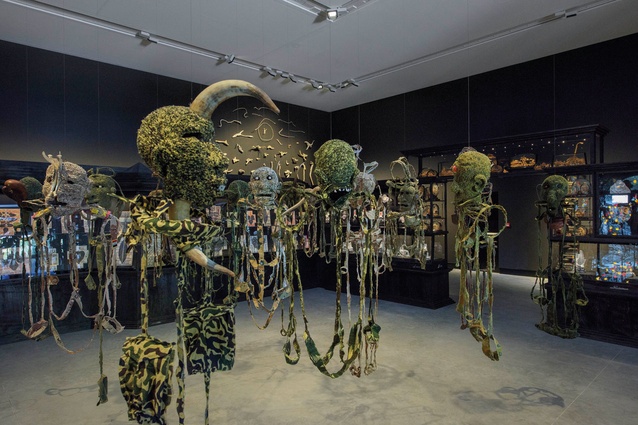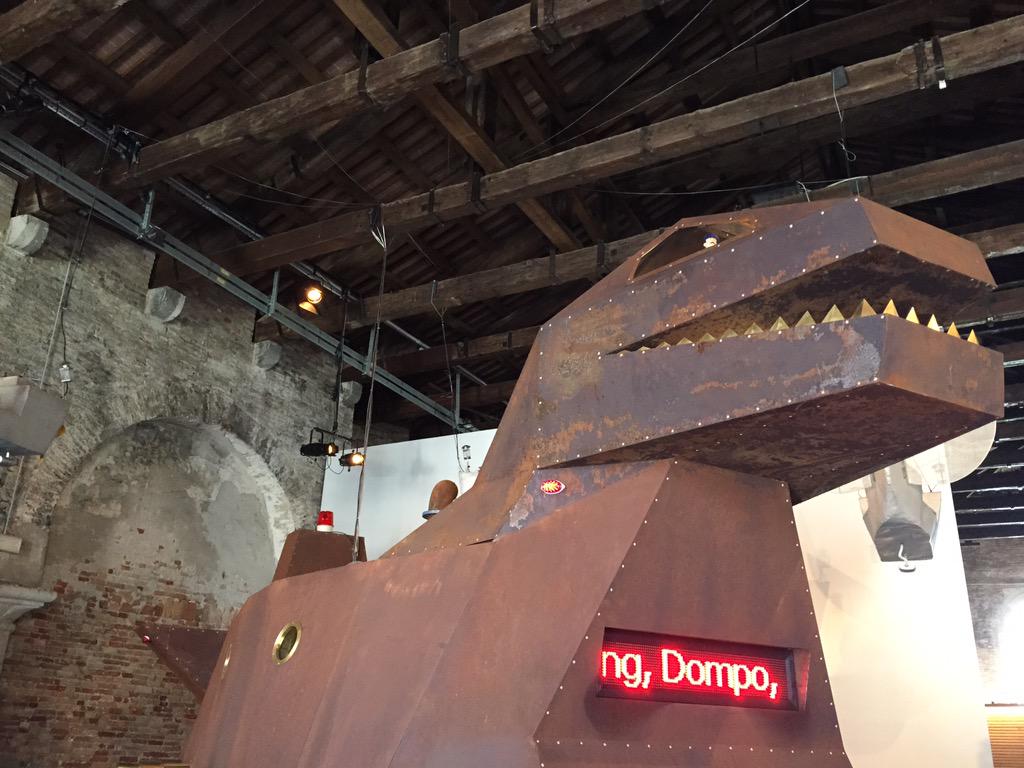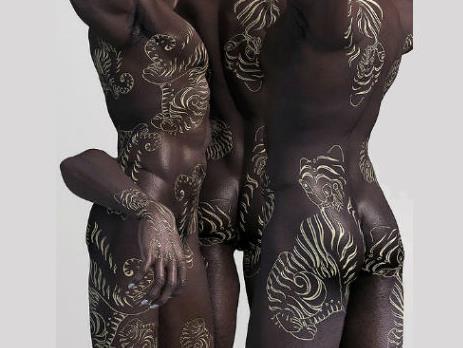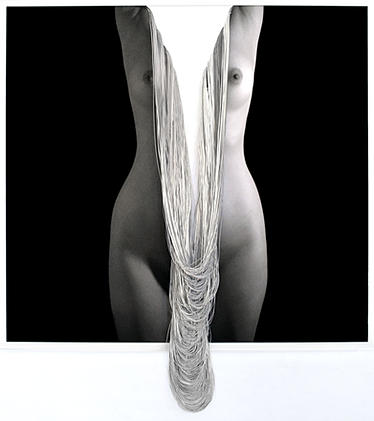Kim Joon, Ebony Tiger, From Frontiers Reimagined, All images from official exhibition sites or by Naima Morelli.
Every country wants a piece of the Venice Biennale. The most established – predominantly European – have permanent pavilions in the Giardini, while the new powers have taken over the Arsenale. More countries buy in each year. The 2015 Biennale includes, for the first time, Andorra, Bangladesh, India, Iraq, Saudi Arabia, South Africa and Zimbabwe.
All visitors to the Biennale will want to take in the official exhibition. This year is its curated by Okwui Enwezor with the title All the World’s Futures. Enwezor characterises the exhibition as an appraisal of the relationship of art and artists to the current state of things. ‘The ruptures that surround and abound around every corner of the global landscape today recall the evanescent debris of previous catastrophes piled at the feet of the angel of history in Angelus Novus. How can the current disquiet of our time be properly grasped, made comprehensible, examined, and articulated?’ he writes.
But once they have taken in the main show what are visitors choosing from the 89 national pavilions, 44 official collateral shows and countless unofficial events? In the first week, this is what is creating the buzz.
Japanese Labyrinth

Scenic and delicate like no other, the Japan pavilion features the installation Key in the Hand by Chiharu Shiota. Certainly the most photographed work, it consists in a thick net of red yarn filling the space. Attached to the end of each piece of yarn, suspended from the ceiling, there is a key. Two old boats are caught like flies in the red net – a beautiful metaphor of a travel through life and memories.
Australian Dystopia

While visitors may have lined up to see the new Australian pavilion as much as the exhibition, the show didn’t fail to leave an impression on visitors. A dark and doomed atmosphere illuminates a work of social relevance and great impact in Fiona Hall’s Wrong Way Time. Something between a cabinet of curiosities and a control room monitoring world destruction, the exhibition is launching the new pavilion to much acclaim.
Bums and puns

Sarah Lucas, I Scream Daddio, Photo via British Pavilion
Provocation to the beat of rock’n’roll is creating conversation at the British Pavilion. The exhibition from Sarah Lucas, part of the notorious Young British Artists movement is noisily entitled I SCREAM DADDIO, caps required, and is filled with the artist’s trademark visual puns and bawdy humour. It features ambiguous sculptures and body parts – ironic and sexual at the same time. The pavilion opened, appropriately, with a rock concert at the Giardini.
Trojan Dragon

The Indonesian Pavilion has been much appreciated for its playfulness. Appointed artist Heri Dono – a Biennale veteran – has brought forward the concept of Sankti from last year, to create his new work Trokomod. This site-specific installation has been conceived as the fusion of the Trojan Horse and the Indonesian Komodo dragon, bringing together eastern and western mythologies. Visitors can peep through telescopes to see artifacts and images belonging to ancient and contemporary Indonesian culture.
The Italian Code

Italian pavilion curator Vincenzo Trione is interested in revisiting the history and traditions of the host nation, showcasing a selection of artists who are strongholds of Italian contemporary art but reflect Italian tradition. The Italian identity, dubbed “Italian Code”, is exemplified by site-specific work which draws on the ancestral and folk roots of Italy. Not to be missed are Vanessa Beecroft’s golden sculptures, Mimmo Paladino’s room (above) and Marzia Migliora illusionistic installation.
Confronting Genghis Khan

The Philippines has made a great comeback to the Biennale, after 50 years of absence. Curator Patrick Flores has constructed an exhibition entitled Tie A String Around The World exploring the challenges of sea nations in the global era.The work combines a restored 1950 film Genghis Khan, directed the late artist Manuel Conde and Carlos Francisco, with commissioned works by multi-media artist Jose Tence Ruiz (Shoal, above) and filmmaker Manny Montelibano.
Remembering Armenia

Hrair Sarkissian, Unexposed, Armenity / Haiyutioun,
Awarded with a Golden Lion, the Armenian Pavilion called Armenity / Haiyutioun, features contemporary artists from the Armenian diaspora. The Pavilion is located at the Mekhitarist Monastery on the island of San Lazzaro degli Armeni. This is a special year for Armenia, as 2015 is the year of on the one hundredth commemoration of the Armenian Genocide. The artists exhibiting don’t necessarily carry an Armenian passport, but reflect their own Armenian identity through works tied to the concept of memory.
Frontiers Reimagined
Kamolpan Chotvichai, Anicca, from Frontiers Reimagined
The most successful collateral show has certainly been Frontiers Reimagined at Museo di Palazzo Grimani, curated by Sundaram Tagore, with co-curator Marius Kwint. The exhibition explores the theme of cultural boundaries through contemporary and ancient work by artists from around the world. The work creates a dialogue with the architecture and collection of the Museo di Palazzo Grimani, a 16th century palace holding a unique place in Venetian history and architecture.
India and Pakistan exhibit as one

My East is Your West, is another official collateral exhibition who gathered a lot of attention. Located in Palazzo Benzon, it unites for the first time at the Venice Biennale the historically conflicting nations of India and Pakistan. Though the work of Shilpa Gupta (Mumbai) and Rashid Rana (Lahore) My East is Your West presents these two countries as a singular region within the context of the Venice Biennale.
Gothic Glass

Palazzo Franchetti hosts the sumptuous exhibition Glasstress Gotika, organized by the State Hermitage Museum and Berengo Studio. The show explores how medieval ideas have crept into our modern conscience and society and how Gothic concepts influence contemporary art. The artists, who are from over 20 countries, were asked to respond to the Gothic concept in their creations in glass and produced an extraordinary range of work. One of the many striking works is Steam I by the Recycle Group shown above.





